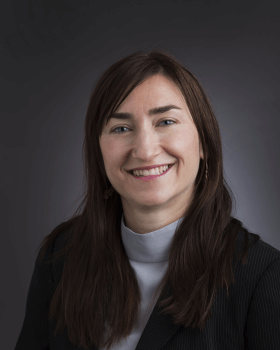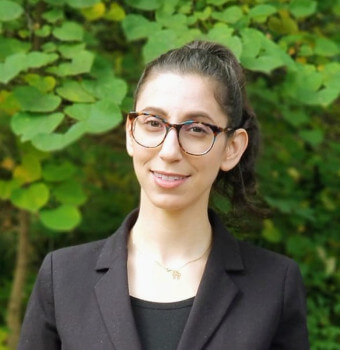USDA previews the major challenges we will face as we cultivate the future of agriculture.
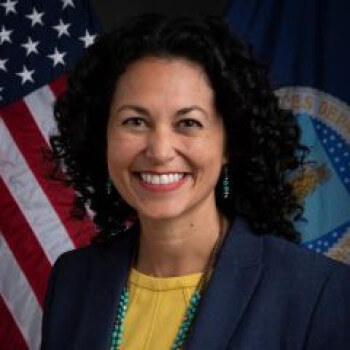
USDA’s Chief Economist unveils USDA’s Outlook for the domestic agricultural economy and trade for the year.
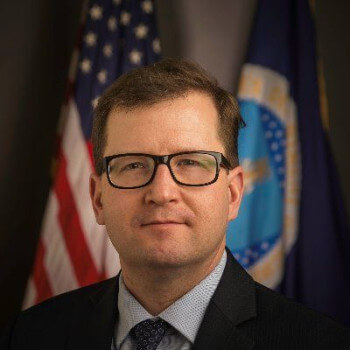
Secretary Vilsack underscores the history and evolution of agriculture in the U.S. while painting a vision of the future. This includes protecting and increasing the number of farmers, preserving the portion of land in agriculture, and creating new revenue streams, especially for small and mid-sized farmers.
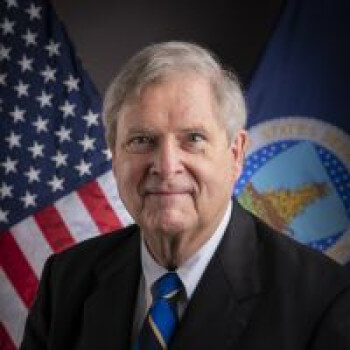
State leaders share their perspectives about the future of agriculture and the challenges producers are facing, as well as their experiences implementing USDA investments in food and agriculture on the ground.
Moderator: Xochitl Torres Small, Deputy Secretary of Agriculture, USDA
Tim Boring, Director, Michigan Department of Agriculture & Rural Development
Rick Pate, Commissioner, Alabama Department of Agriculture and Industries
Amanda Beal, Commissioner, Maine Department of Agriculture, Conservation and Forestry

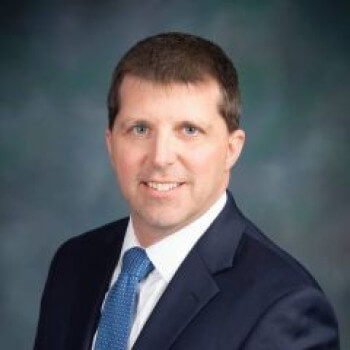
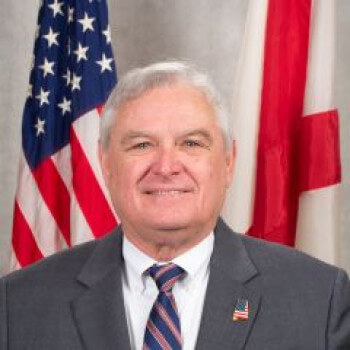

Producers and industry experts discuss innovative agricultural approaches that are paving the way for a sustainable and equitable future while improving environmental outcomes and generating profit.
Moderator: Robert Bonnie, Under Secretary of Agriculture for Farm Production and Conservation, USDA
Panelists
Zach Ducheneaux, Administrator, USDA Farm Service Agency
Jennifer Nelligan, Chief Program Officer, National Association of Conservation Districts
Paul Bloom, Chief Carbon Officer and Chief Innovation Officer, Gevo
Trey Hill, Owner and Manager, Harborview Farms
Kyle Bridgeforth, Owner and Operating Partner, Bridgeforth Farms
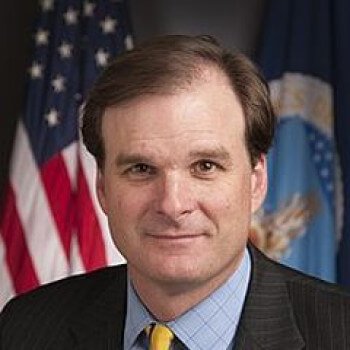
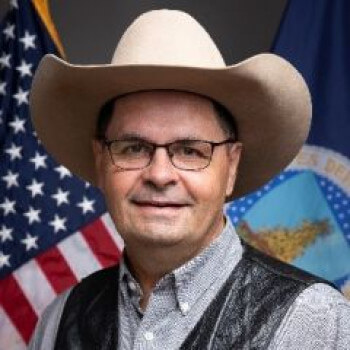

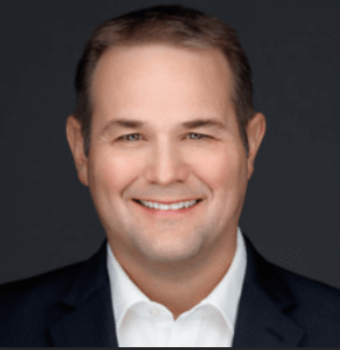
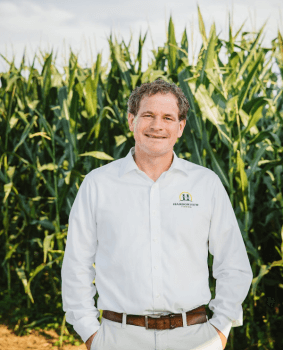

Innovators discuss how we are changing the agricultural landscape and creating new opportunities for farmers today—and the farmers of the future.
Moderator: Chavonda Jacobs-Young, Under Secretary for Research, Education, and Economics and USDA's Chief Scientist, USDA
Rajiv Shah, President, The Rockefeller Foundation


As a fact-based, data-driven, customer-focused organization, USDA is increasingly leveraging its vast administrative and programmatic data. This session will feature a variety of ways USDA is using data visualizations to describe key findings effectively, helping to make the data more accessible and transparent to an array of new and current data users.
Moderator: Lance Honig, Acting Director, Methodology Division, NASS, Washington, DC
Crop Sequence Boundaries: A New Publicly Available Geospatial Dataset to Support Research and Decision Making
Illustration of the development and usage of the new Crop Sequence Boundaries, which are synthetic representations of crop field boundaries and historic planting patterns.
Speaker: Tara Murphy, Mathematical Statistician, NASS, Washington, DC
ERS Food Access Research Atlas Tutorial
This presentation will provide an overview of the Food Access Research Atlas and will teach attendees how to effectively use and download data from the mapping tool.
Speaker: Alana Rhone, Agricultural Economist, ERS
Visualizing Nutrition Assistance Programs
FNS strives to improve access to publicly available data related to nutrition security and programs through prioritizing public data visualizations and analytic tools.
Speaker: Katya Noykhovich, Senior Data Analyst, FNS
USDA Expands Access to Grading/Improves Data with Technology
Highlighting AMS’s efforts to use technology to improve its grading service (e.g., application of USDA Prime, Choice) and expand access to smaller capacity beef processors, widening their market access.
Speaker: Bucky Gwartney, International Marketing Specialist, AMS
New USDA Livestock Auction Dashboard Brings Data to Life
Overview of the AMS Market News Livestock Auction Market interactive data visualization tool providing market information for cattle, sheep, and goats in an easily accessible and user-friendly format.
Speaker: Levi Geyer, Assistant Chief of Livestock, Poultry, and Grain Market News, AMS
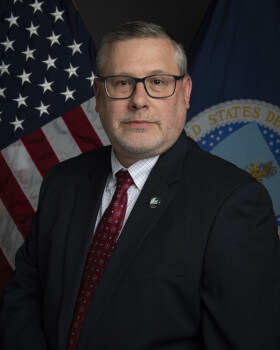
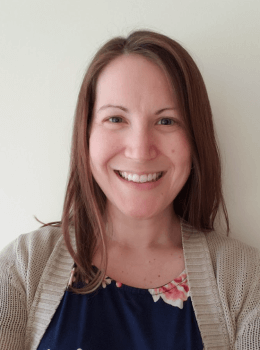

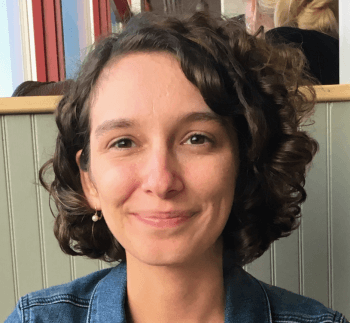
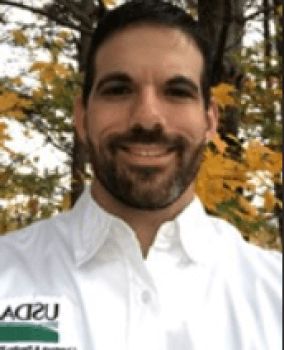
Presenters will examine the outlook for U.S. farm sector income and agricultural credit conditions. They will also discuss the role and impact of Farm Bill programs on farm financial conditions.
Moderator: Jackson Takach, Chief Economist, Farmer Mac, Washington, DC
USDA Farm Income Forecast
A presentation on the latest USDA farm sector income and wealth forecasts through 2024.
Speaker: Carrie Litkowski, Senior Economist, Economic Research Service, USDA, Washington, DC
Agricultural Credit Conditions
A look at recent trends and issues affecting agricultural lending and credit conditions.
Speaker: Nathan Kauffman, Senior Vice President and Omaha Branch Executive, Federal Reserve Bank of Kansas City, Omaha, NE
The Role and Impact of Farm Bill Programs
A discussion of the use, role and impact of Farm Bill programs (including commodity support programs like ARC and PLC and federal crop insurance) on the farm sector.
Speaker: Carl Zulauf, Professor Emeritus, Ohio State University
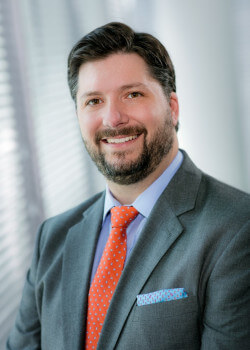
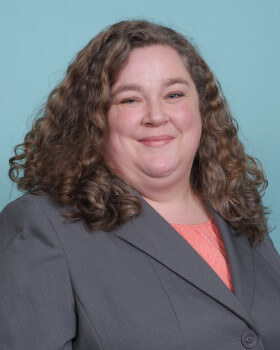
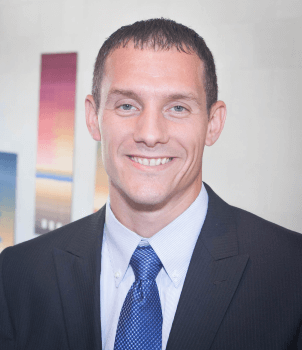
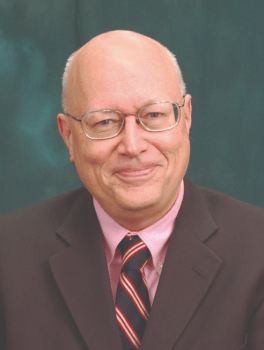
Moderator: Randy Russell, President, The Russell Group, Washington, DC
Panelists
Rob Johansson: USDA Chief Economist, 2014-2020
Joseph Glauber: USDA Chief Economist, 2008-2014
Dan Sumner: USDA Assistant Secretary of Economics, 1992-1993
Robert Thompson: USDA Assistant Secretary of Economics, 1985-1987

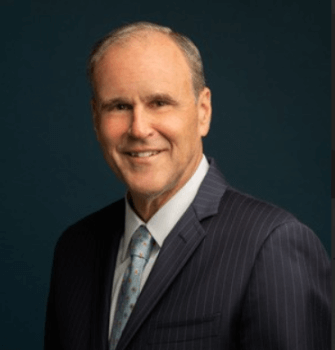
Data from the 2022 Census of Agriculture will be released at noon on February 13. Expert panelists will share the latest information about farm numbers, economics, demographics, and how the data will be used to inform policies.
Moderator: Hubert Hamer, Administrator, NASS, Washington, DC
A Snapshot of U.S. Agriculture: Highlights from the 2022 Census of Agriculture
Join us for an overview of 2022 Census of Agriculture data highlights that will span a range of topics from number of farms and land in farms to value of sales.
Speaker: Bryan Combs, Chief, Environmental, Economics, & Demographic Branch, NASS, Washington, DC
A Portrait of U.S. Agriculture: Demographic Information from the Census of Agriculture
NASS’s demographer will share what we know about the many faces of U.S. agriculture. This presentation will explore the expanded demographic profile of farmers and ranchers that is only available once every five years through the Census of Agriculture.
Speaker: Virginia Harris, Statistician, NASS, Washington, DC
Know Your Farmers: Why the Ag Census Matters
Nothing provides a better, bigger picture of the shape and size of American agriculture to farmers, their advocates, and policy makers than Census data. Dr. Cryan will share the value and challenges of using this data for policy and market information.
Speaker: Roger Cryan, Chief Economist, American Farm Bureau Federation, Washington, DC
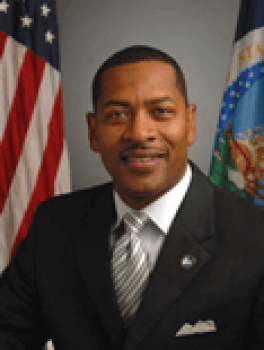

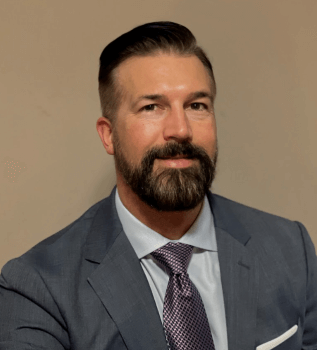
An overview of USDA’s actions to reach the historic White House Conference goals to end hunger, improve nutrition and physical activity, and reduce diet-related diseases and disparities. Various USDA Mission Areas will discuss their implementation of activities under the National Strategy and highlight ways attendees can help accelerate progress.
Moderator: Alberto Gonzalez Jr., MPP, Chief Policy Advisor, USDA Food and Nutrition Service, Alexandria, VA
USDA Research, Education, and Economics Mission Area Contributions to Accelerating Progress on the WHC Goals
An overview of the various ways the Office of the Chief Scientist and the Research, Education, and Economics Mission Area is advancing the National Strategy Pillar 5 focused on enhancing nutrition and food security research.
Speaker: Deirdra Chester, Director of the USDA Office of the Chief Scientist, USDA REE/Office of the Chief Scientist, Washington, DC
USDA Marketing and Regulatory Programs Mission Area Contributions to Accelerating Progress on the WHC Goals
How the Marketing and Regulatory Programs Mission Area is accelerating progress on the White House Conference Goals particularly around National Strategy Pillar 1 focused on improving food access and affordability.
Speaker: Kate Fitzgerald, Senior Advisor for Food Systems, USDA Marketing and Regulatory Programs Mission Are, Washington, DC
USDA Rural Development Mission Area Contributions to Accelerating Progress on the WHC Goals
The Rural Development Mission Area’s efforts toward accelerating progress on the White House Conference goals, particularly around rural health.
Speaker: Kellie Kubena, USDA Rural Health Liaison, USDA Rural Development Mission Area, Washington, DC
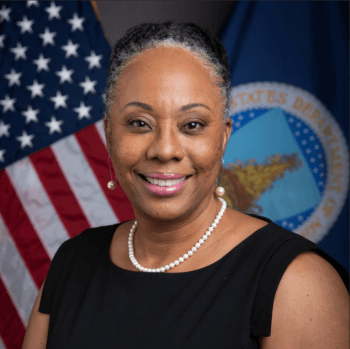
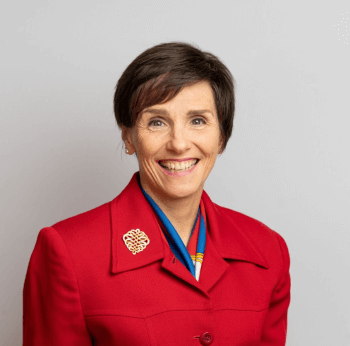
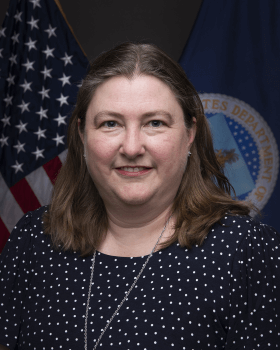
How innovation in robotics and AI can expand business diversity, build for future generations, and bolster local and regional food systems, resulting in improved nutrition security for all. Expansion in the use of robotics and AI leads to new types of business plans, attracting funding and enabling value-added and higher returns through diverse short food supply chains.
Moderator/Panelist: John Shutske, Professor, University of Wisconsin - Madison, Madison, WI
Framing Platform and Workforce Development
The farming core system, AmigaOS, is designed as modular building blocks for adaptable and fully autonomous agriculture. It empowers our hardware and software products to support a wide range of robotic farming applications.
Speaker: Ethan Rublee, CEO, Watsonville, CA
Adoption of Novel Technologies
A discussion of the factors that contribute to the often low adoption rates of efficiency-enhancing technologies, with an emphasis on the importance of considering diverse producer characteristics, risks, and uncertainty when analyzing the incentives to adopt such technologies.
Speaker: Madhu Khanna, Distinguished Professor, University of Illinois Urbana-Champaign, Urbana, IL
Youth Robotics and AI
A discussion of the tremendous potential for robots to transform the world for the better, while also addressing the challenges of their cost and accessibility. The speaker will also explore ways to ensure that all youth have access to quality technical educational resources.
Speaker: Unfortunately, due to unforeseen circumstances, Danielle Boyer, who was originally scheduled to speak at this session, will no longer be able to participate.

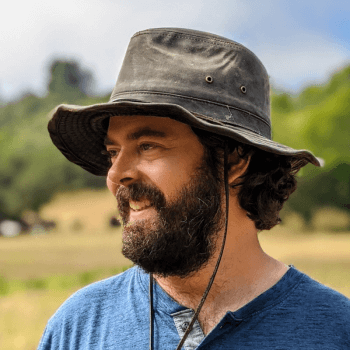

Panelists will explore the evolution of agricultural trade over the past century and the forces shaping its future. Trade expansion has been fueled by productivity gains, economic and population growth, technological advances, and market liberalization. What have we learned from the past 100 years and what’s on the horizon to ensure sustainable growth in international trade?
Moderator: Alexis Taylor, USDA Under Secretary for Trade and Foreign Agricultural Affairs, USDA-TFAA, Washington, DC
100 Years of Agricultural Trade: How Did We Get Here?
How 100 years of history shaped the current agricultural trade landscape. The speaker will walk us through the major milestones and factors that influenced agricultural trade in the last century.
Speaker: Sharon Sydow, Senior Economist, USDA Office of the Chief Economist, Washington, DC
Current State of International Trade Policy: A Main Protagonist in the Pursuit of Global Integration
The panelist will discuss the role of international trade policy and law in reducing protectionism and increasing food security and market access for exports increasing economic efficiencies, competitiveness, and export-led growth in the 21st century
Speaker: Jeffrey Schott, Senior Fellow, Peterson Institute for International Economics, Washington, DC
What Lies Ahead: Searching for Innovation and the Next Technological Frontier
What are the innovations of the future that will feed more people, protect the planet and still benefit farmers? This panelist will discuss the advancements driving agricultural production, food security and global trade.
Speaker: Beth Bechdol, Deputy Director-General, Food and Agriculture Organization of the United Nations, Rome, Italy
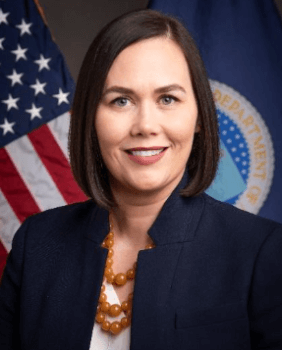
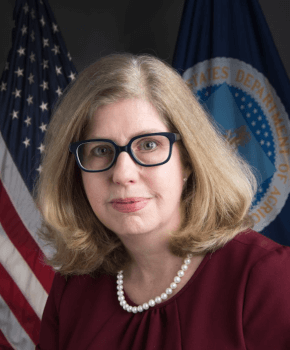
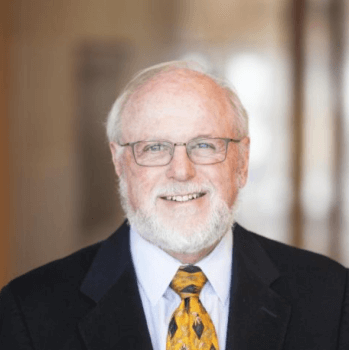
A discussion of the current status of USDA’s portion of the Administration’s bold goals for US Biotechnology and Biomanufacturing. Speakers will discuss the biobased products economic impact report that will be released shortly before the Forum, along with research, training, and other BioPreferred-related resources intended to improve recognition of the program and adherence to the federal purchasing requirements.
Moderator: Bill Hohenstein, Director- Office of Energy and Environmental Policy, Office of the Chief Economist, Washington, DC
Speaker: Greg Jaffe, Senior Advisor, USDA/Office of Secretary, Washington, DC
Speaker: Karen Edwards, United Soybean Board Consultant, United Soybean Board, Chesterfield, MO
Speaker: James Glueck, Executive Director, TBD, Plant Based Products Council (PBPC), Washington, DC
Speaker: Chris Bliley, Senior Vice President of Regulatory Affairs, Growth Energy, Washington, DC
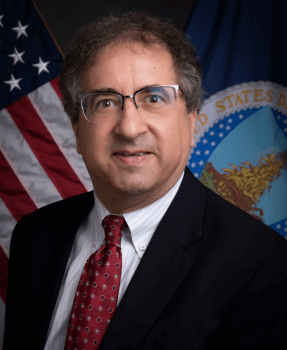
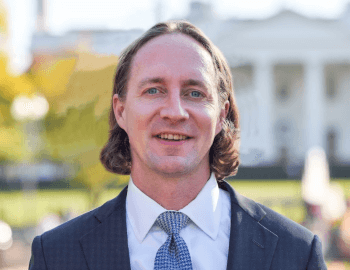
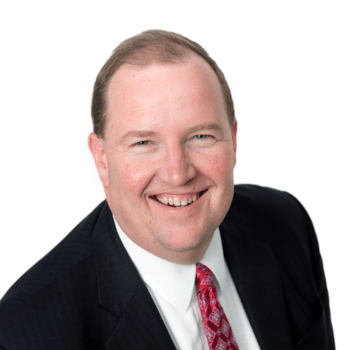
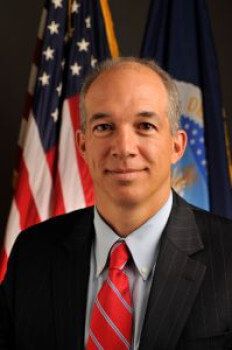
Focuses on how agricultural contracts are used in livestock markets, concerns about their manipulation in concentrated markets, and their ability to add value to the production process through greater coordination and quality improvement.
Moderator: James MacDonald, Professor, Dept of Agricultural and Resource Economics, University of Maryland, College Park, MD
Perspectives from Farm Bureau Members on Contracting
The speaker will discuss the role of contracts in livestock marketing and perspectives and concerns of Farm Bureau members regarding concentration in the packing sector.
Speaker: Bernt Nelson, Livestock Economist, American Farm Bureau Federation, Fairfax Station, VA
Coordinating Production through Contracting
The speaker will examine the competitive environment surrounding marketing cattle under contracts, including the effect on key contract terms affecting compensation and investment.
Speaker: Justin Tupper, President, U.S. Cattlemen’s Association, Washington, DC
Knowledge Gaps in Understanding Markets with Contracts
The speaker will focus on knowledge gaps in understanding the terms of agricultural contracts, their utilization by producers, and their potential problems in markets that are thin or characterized by market power.
Speaker: Rachael Goodhue, Professor, Dept of Agriculture and Resource Economics, Univ. of California, Davis, CA
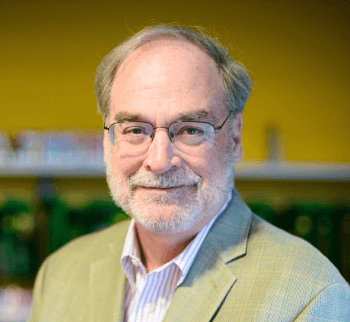
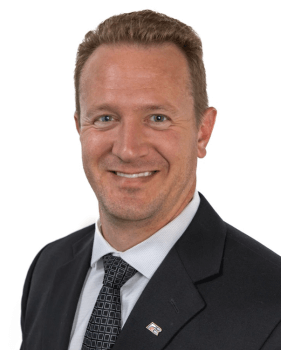
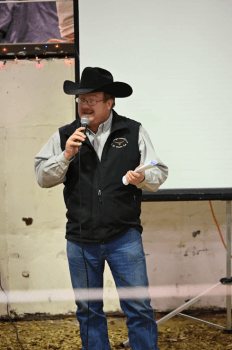
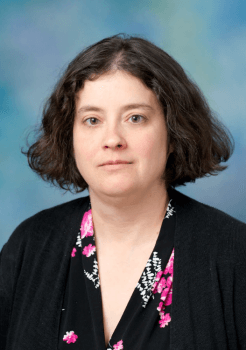
A review of recent food price trends, and USDA’s current food price outlook. The impact of food price inflation on nutrition assistance programs will also be discussed.
Moderator: Jay Variyam, Division Director, Food Economics Division, USDA Economic Research Service
USDA Food Price Outlook
An examination of recent trends in retail food price inflation within a historical context, along with USDA’s projections for food price inflation in 2024.
Speaker: Megan Sweitzer, Agricultural Economist, USDA Economic Research Service
Food Prices and the Consumer 2024: How Shoppers and Consumer Preferences are Responding to the Post-COVID, Post-Inflation Marketplace
The speaker will present new consumer research about how Americans are responding to changing prices, where they’re shopping, what they want to know about their food, and how they feel about new technology – including AI – in the marketplace.
Speaker: Andrew Harig, Vice President, Tax, Trade, Sustainability & Policy Development, FMI, The Food Industry Association
Recent Food Inflation’s Impact on Nutrition Assistance Programs and Participants
This presentation highlights how recent food inflation impacted the Food and Nutrition Service’s nutrition assistance programs and participants. An overview of impacts to the WIC Program, SNAP, school meals, and the Thrifty Food Plan will be covered.
Speaker: Joseph Clift, Assistant Deputy Administrator, Office of Policy Support, USDA Food and Nutrition Service
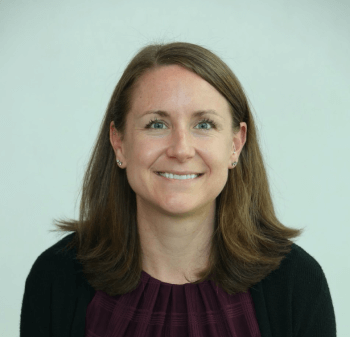

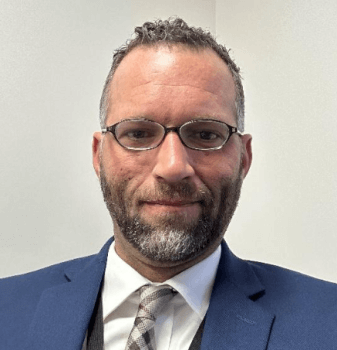
Biotechnology continues to advance at a rapid pace. USDA is at the forefront of this field for both plants and animals. APHIS works with producers and conumers to ensure an efficient regulatory process. Plant and animal biotechnology can improve animal gentics for agricultural, industrial, or pharmaceutical applications.
Moderator: Mike Watson, APHIS Administrator, APHIS, Riverdale, MD
APHIS and Biotechnology
BRS protects and enhances U.S. agricultural and natural resources using a science- and risk-based regulatory framework to ensure the safe importation, interstate movement, and confined environmental release of regulated GE organisms.
Speaker: Abigail Walter, Senior Biological Scientist, APHIS Biotechnology Regulatory Services, Riverdale, MD
Animal Biotechnology
Dr. van Eenennaam leads research on the use of animal genomics and biotechnology in livestock production systems. The research focus of her lab is the use of DNA-based biotechnologies in beef cattle production and agricultural systems.
Speaker: Alison Van Eenennaam, Professor, UC Davis, Davis, CA
Plants and Insects and Molecular Biology
USDA uses molecular biological methods to support production of beneficial insects through detection of insect pathogens in rearing populations. Methods developed at the laboratory include cutting-edge molecular approaches to study nucleic acids.
Speaker: Jose Carlos Verle Rodrigues, Director, Insect Management and Molecular Diagnostics Lab, APHIS, Edinberg, TX
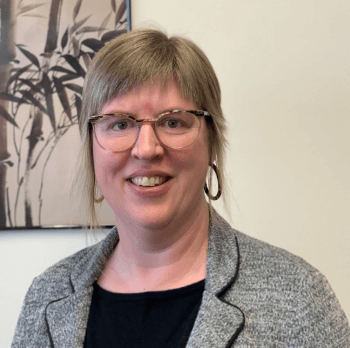
Moderator: Manjit K. Misra, Director, National Institute of Food and Agriculture
Speaker: Wendy Wintersteen, President of Iowa State University
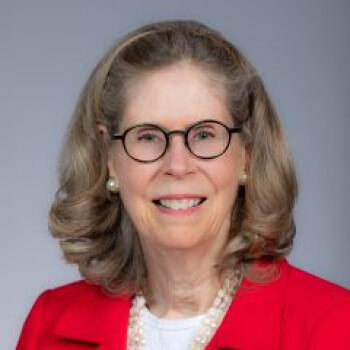
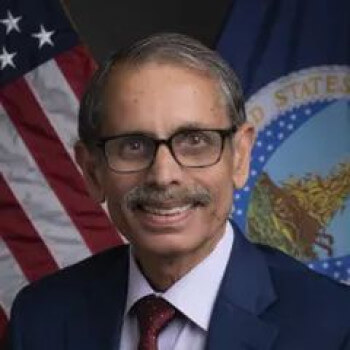
U.S. food and agricultural exports are a critical driver of the U.S. economy. With an estimated 20 percent of U.S. agricultural production being shipped to the global marketplace, USDA is committed to continuously creating new and better export opportunities for rural America. Secretary Thomas Vilsack will host U.S. Ambassadors from Vietnam, and the Philippines, two countries that offer high potential for increasing agricultural imports. The panel will discuss U.S. Government efforts on market promotion, trade policy, capacity building, and other ongoing engagements to identify untapped demand and expand U.S. agricultural exports.
Moderator: Agriculture Secretary Tom Vilsack
Virtual Remarks by Secretary of State Antony Blinken
U.S. Trade Representative Katherine Tai
Ms. MaryKay L. Carlson, U.S. Ambassador to the Philippines
Mr. Marc E. Knapper, U.S. Ambassador to Vietnam
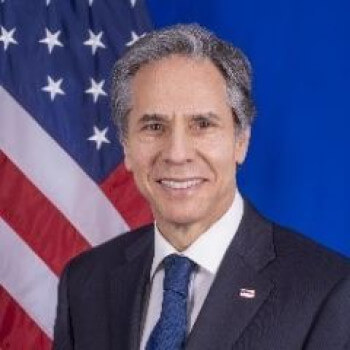

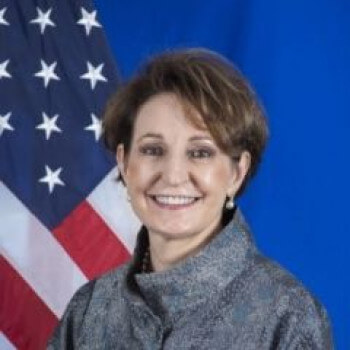
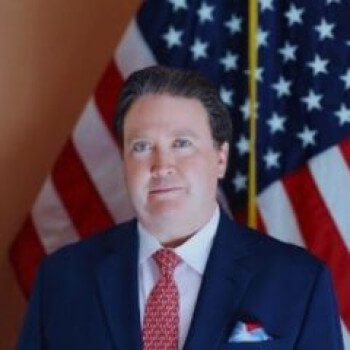

This session will explore recent Departmental efforts to reach historically underserved producers and improve equity in USDA programming. Presentations will outline various initiatives, including new and pilot programs, to expand the Federal Crop Insurance Program for underserved producers, the perspective of the agency delivering the programs, and the insights of those marketing and using the products.
Moderator: Marcia Bunger, Administrator, Risk Management Agency, Washington DC
Participation by Underserved Producers in Federal Programs
This presentation will use 2022 ARMS data, which over-sampled underserved producers, to provide findings on participation of underserved producers in government programs, crop insurance, and agricultural lending markets.
Speaker: Anil Giri, Research Agricultural Economist, ERS, Raymore, MO
Crop Insurance as an Underserved Producer
This presentation will discuss experience, benefits, and challenges faced by an underserved producer who has recently participated in FCIP.
Speaker: Carmen Black, Farmer, Solon, IA
Reaching Underserved Producers
This presentation will discuss experience, benefits, and challenges faced by a private company that has implemented renewed programs and initiatives to reach underserved producers who have not participated in the Federal Crop Insurance Program in the past.
Speaker: Staci Emm, Professor and Extension Educator, University of Nevada, Reno, Hawthorne, NV
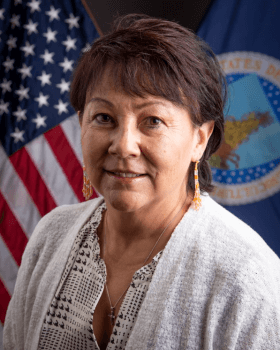

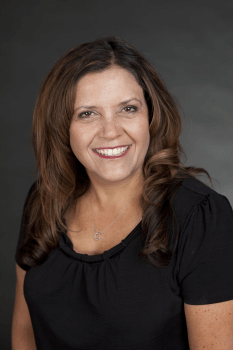
Forest thinning operations to reduce wildfire risk remove a lot of biomass that currently has no outlet. In this session presenters will explore how a new biorefinery process can help solve a forest waste problem and help meet our nation’s growing need for sustainable aviation fuel and other bioproducts.
Moderator: Ken Zwick, Assistant Director for Research, Forest Service - Forest Products Laboratory, Madison, WI
2023 Billion-ton Report: National biomass resource assessment
Speaker: Matthew Langholz, Oak Ridge National Laboratory
Speaker: Michael Goergen, Vice President Innovation, US Endowment for Forestry and Communities, Bethesda, MD
Speaker: Cody Gallaher, Plant Manager and Lead Process Engineer, GranBio, Thomaston, GA

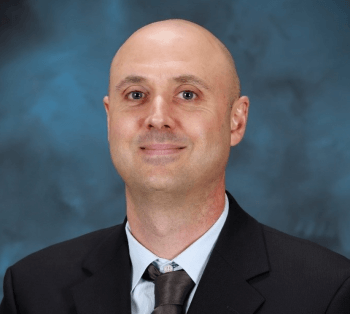
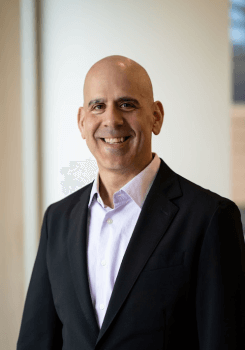

Developing partnerships across the supply chain and between urban and rural communities leads to more resilient food systems. This session will highlight how small-scale rural and urban producers and food businesses are working together to build capacity for innovation and increase market opportunities. Local policies and network support are key to market access for small food businesses.
Moderator: Jenny Moffitt, Under Secretary, MRP
Technical Assistance for Improving Rural Market Access
Through direct technical assistance and network development to food entrepreneurs, the Appalachian Center for Economic Networks (ACEnet) works to grow the regional economy and is a partner in the new Appalachia Regional Food Business Center.
Speaker: Leslie Schaller, Director of Programs, ACEnet
Urban Food Producers and USDA Support
Provides examples of how urban farms can generate revenue with full vertical integration; improve market access prospects for small rural and urban producers; and address food access, greenspace, climate, and nutrition security issues.
Speaker: Kathy Mason, Owner/Operator, Marcellus Farms, Brandywine, MD
Developing Urban Markets
Working at the local level, the Montgomery County Food Council supports policies, programs, and partnerships that foster market development for food businesses, food access for consumers, and sustainable markets.
Speaker: Michelle Caruso, Director of Policy and Partnerships, Montgomery County Food Council
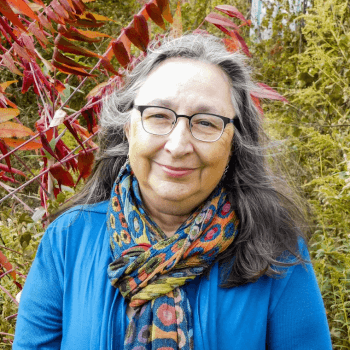
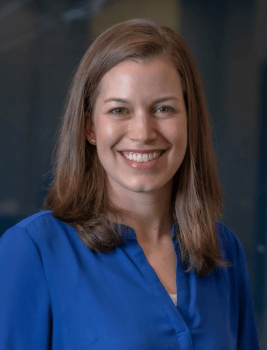

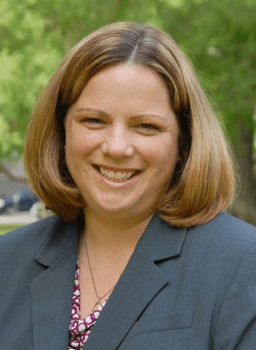
Cell-cultured meat and poultry are of high interest to consumers and industry, as well as food policy makers. This session will discuss consumer, industry, and legal perspectives with relation to the labeling of cell- cultured products, providing insight into how product labeling matters for this emerging area of food production.
Moderator: Sandra Eskin, Deputy Under Secretary, USDA Office of Food Safety
Cell Cultured Meat and Poultry: How Do We Label It? - An Industry Perspective
Speaker: Madeline Cohen, Senior Regulator Attorney, The Good Food Institute, Washington, DC
Cell Cultured Meat and Poultry: How Do We Label It? - A Consumer Perspective
Speaker: Brian Ronholm, Director of Food Policy, Consumer Reports
Cell Cultured Meat and Poultry: How Do We Label It? - An Academic Perspective
Speaker: William Hallman, Professor, School of Environmental and Biological Sciences, Rutgers University, New Brunswick, NJ
Cell Cultured Meat and Poultry: How Do We Label It? - An Industry Perspective
Speaker: Peter A. Arhangelsky, Esq., Shareholder, Greenberg Traurig, LLP, Phoenix, Arizona
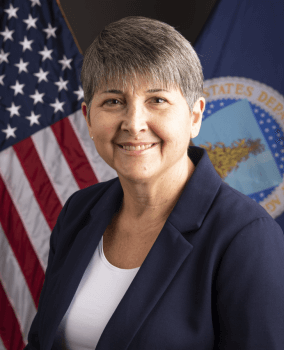
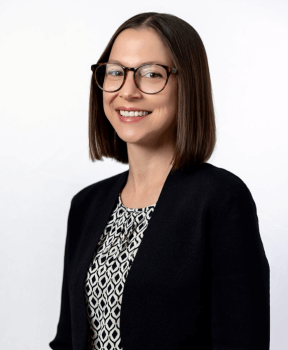
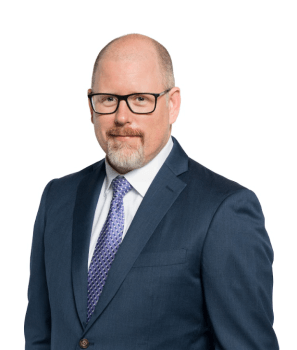
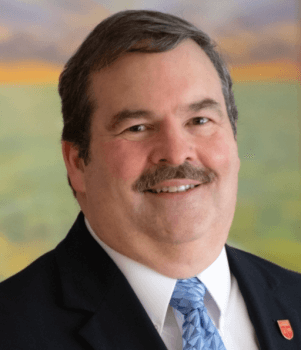

The session will include presentations on USDA's preliminary supply and demand forecasts for 2024/25 for grains and oilseeds and a discussion of the key factors impacting the outlook.
Moderator: Lindsay Kuberka, Senior Director, USDA FAS
Logistical Aspects of Grains and Oilseeds Trade
Speaker: Alexander Karavaytsev, Senior Economist, IGC
The 2023/24 El Nino: Monitoring Global Impacts on Agriculture
Speaker: Mark Brusberg, Chief Meteorologist, USDA
Speaker: Jake Vuillemin, Agricultural Economist, USDA
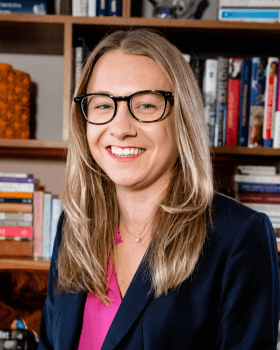
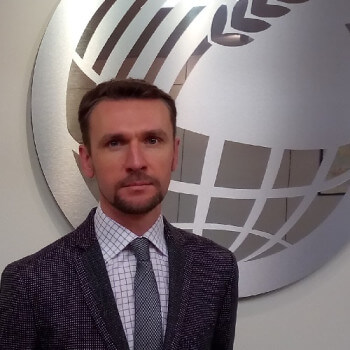
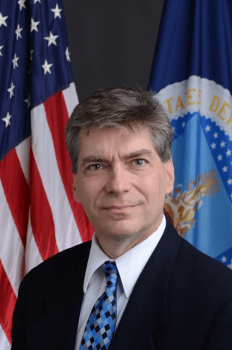

Moderator: Devine Jon, Senior Economist, Cotton Inc., Cary, NC
Brazil and The Future of World Cotton Exports
Brazil has risen rapidly through the ranks of global cotton producers, surpassing the United States in crop size and heading to the first rank among global exporters.
Speaker: Lidiane Eichelt, Vice President Cotton, Olam Agri, Olam Agra, São Paulo, Brazil

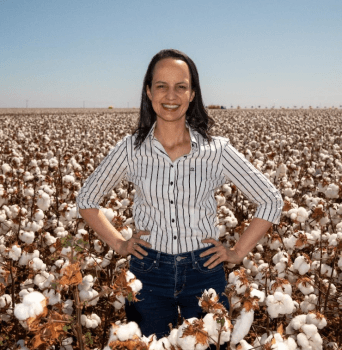
Moderator: Seth Meyer, Chief Economist, USDA, Washington, DC
Reconciling Projections with Reality in the Grain and Oilseeds Markets
Speaker: Angie Setzer, Co-Founder/Partner, Consus ROI, LLC


Moderator: Mark Jekanowski, Chairperson of the World Agricultural Outlook Board, USDA, Washington, DC
How Controlled Environment Agriculture is helping to Feed the Future
Controlled Environment Agriculture (CEA) is an increasingly important part of the food system, offering the potential to produce high-quality food close to consumers with minimal use of chemicals and other inputs.
Speaker: Joe Swartz, Vice President, American Hydroponics, Arcata, CA
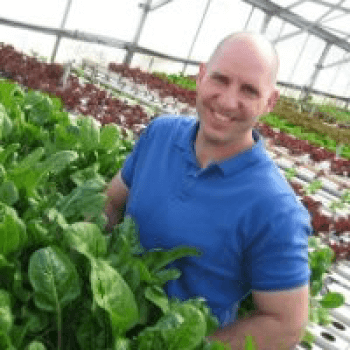
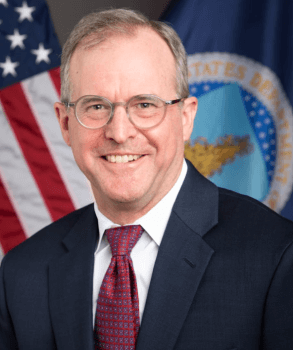
Moderator: Jerry Cessna, Manager, Animal Products and Cost of Production Branch, USDA/ERS, Washington, DC
The Sustainable Transition of the EU Livestock and Dairy Sectors
Speaker: Andrea Porcella Čapkovičová, Coordinator of the EU Agricultural Outlook European Commission , Brussels, Belgium
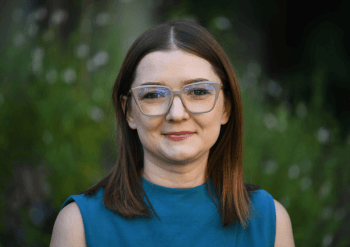

Moderator: Vidalina Abadam, Agricultural Economist, Economic Research Service, Washington, DC
The State and Future of World Trade in Sugar: Confronting the Challenges
Speaker: Jeff Dobrydney, Sr. Vice President, Head of Futures and Options, JSG Commodities, Norwalk, CT
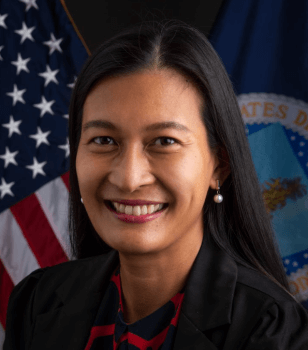
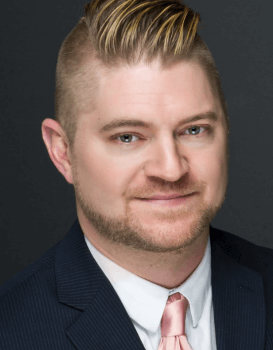
Legislators from the United States and Europe will take stock of their respective agricultural policy agendas and exchange views on how the U.S. Farm Bill, the EU Common Agricultural Policy, and other legislative frameworks and approaches can strengthen cooperation in enhancing global food security, sustainability, and climate-smart agriculture.
Moderator: Mark Titterington, Forum for the Future of Agriculture, Brussels, Belgium
Opening Remarks
Mr. Hafemeister will set the stage and provide an update on USG-EU collaborative trade efforts and initiatives and briefly discuss the impact of legislation on Government’s ability to facilitate agricultural trade.
Speaker: Jason Hafemeister, Acting Deputy Undersecretary for USDA Trade and Foreign Agricultural Affairs
Food security for the US, the EU, and the World. A common challenge for a better future in the 21st century
Speaker: The Honorable Jim Costa, Member of the House Agricultural Committee
Food Sustainability and Competitiveness at the Heart of the EU Agricultural Transition
The EU “Green Deal aims for a carbon-neutral economy. Environmental sustainability of the agri-food industry, but also food security, should be at the heart of EU policy. We must reflect on the CAP’s future for the post-2027 financial period.
Speaker: Irene Tolleret, Member of the European Union Parliament and Chair of the European Food Forum
UK Agriculture Post Brexit: Challenges and Opportunities
How UK farmers are facing labor and cross border certification challenges after leaving the EU, but are using their freedom from the Common Agricultural Policy to engage in new Environmental Land Management Schemes for a more sustainable future.
Speaker: Barry
Gardiner, Member of the United Kingdom Parliment, House of Commons, London, UK
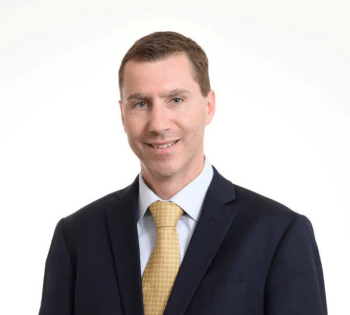
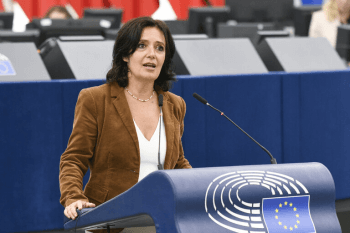
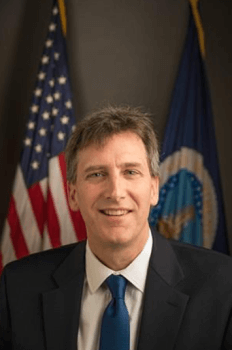
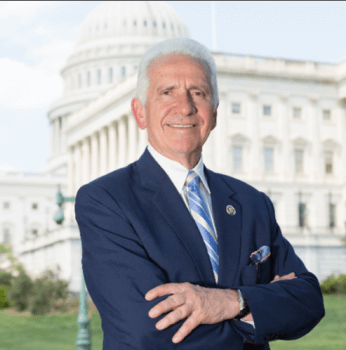

The session will explore water marketing strategies, conservation measures, and agreements that could mitigate discord in agricultural regions facing water scarcity. Recent interstate water agreements covering the Lower Basin of the Colorado River may serve as a case study and launching point for the discussion.
Moderator: Julie Suhr Pierce, National Economist, NRCS
The Future of Water Management Agreements
A discussion of where water management agreements are headed and how they might impact agriculture in water-scarce regions.
Speaker: Camille Calimlim Touton, Commissioner, Bureau of Reclamation, Washington, DC
The Outlook for Water Management - Implications for Agriculture
How water management agreements are likely to impact agriculture in Southern California and beyond.
Speaker: Alvar Escriva-Bou, Assistant Professor Department of Civil and Environmental Engineering, Institute of the Environment and Sustainability, University of California - Los Angeles (UCLA), Los Angeles, CA
TBD
The speake will discuss water management in relationship to Tribal Rights and Economic Development
Speaker: Dylan Hedden-Nicely, Associate Professor of Law, Director, Native American Law Program, College of Law University of Idaho, Moscow, Idaho

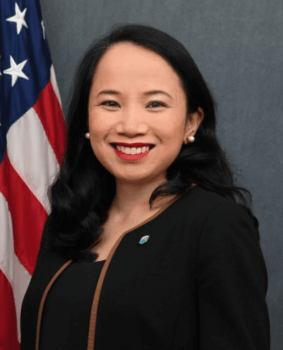

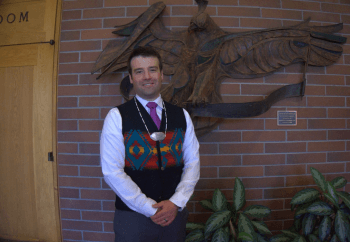
An expert panel will present USDA's first 2024/25 cotton outlook, the U.S. apparel market and industry's outlook and discuss other key topics.
Moderator: Adityavardhan Shah, Trader, Viterra BV, Rotterdam, Netherlands
The World and United States Cotton Outlook
USDA presents its first preliminary forecasts for U.S. and world cotton production, consumption, and trade in marketing year 2023/24.
Speaker: Stephen MacDonald, Fibers Analyst, U.S. Department of Agriculture, Washington, DC
Understanding Texas Cotton Abandonment: Climate, Weather, and Insurance
A discussion of the recurring abandonment of a significant proportion of Texas cotton plantings, which is a globally unique phenomenon, and its significant impact on U.S. production.
Speaker: Darren Hudson, Director, International Center of Agricultural Competitiveness, Texas Tech University, Lubbock, TX
The United States’ Future as a Global Cotton Supplier
U.S. cotton production trends have become volatile, and Brazil has become a formidable competitor. The presenter will discuss what this means for supply flow and how should we see the future for USA cotton in the world market now.
Speaker: Crawford Tatum, Director of Economic Research and Market Risk, Staplcotn, Greenwood, MS
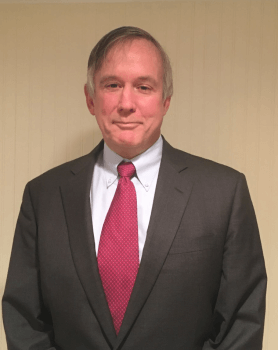

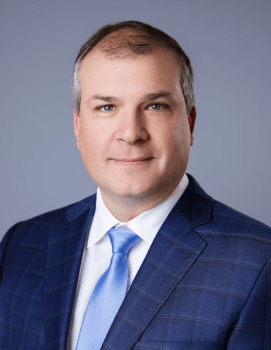
This session will include presentation on USDA's preliminary supply and demand forecasts for 2024/25 livestock and poultry and a discussion of the key factors impacting the sector.
Moderator: Katelyn McCullock, Director, Livestock Marketing Information Center, Denver, CO
Outlook for the U.S. Livestock and Poultry Sector
Speaker: Shayle Shagam, Livestock, Poultry, and Dairy Analyst, USDA
California’s Proposition 12 and the U.S. Hog Sector
Speaker: Steve Meyer, Senior Livestock Economist, Ever.Ag, Ames, IA
Effects of California's Regulations on Pork Products
Speaker: Daniel A. Sumner, Frank Buck Jr Distinguished Professor, Department of Agricultural and Resource Economics
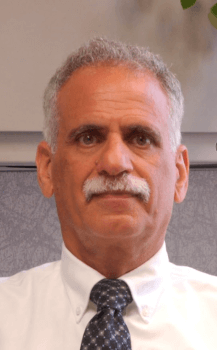


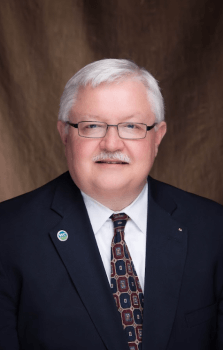
This session will discuss the state and future of the U.S. refining sector from three differing perspectives involving cane and beet sugar.
Moderator: Dylan Daniels, Senior Policy Advisor, FAS, Washington DC
The View from Non-Traditional Cane Sugar Refiners
Speaker: Chris Bergin, Trader and Market Strategist, CSC Sugar, LLC, Westport, CT
The View from the Traditional Cane Sugar Refining Sector
Speaker: Mike Gorrell, Senior Vice President, US Sugar Corporation, Port Wentworth, GA
The View from the Beet Sugar Industry
Speaker: Pedro Figueroa, Vice President of Sales/Marketing (USA), VERAX COMMODITIES, LLC
Reaction from the Sugar User Industry
Speaker: Dan Shorts, Senior Director of Government Affairs, National Confectioners Association, Washington, DC
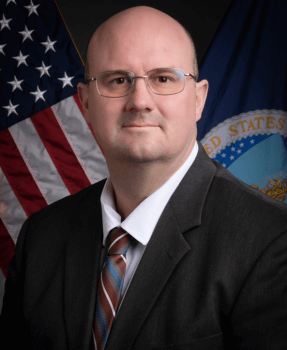


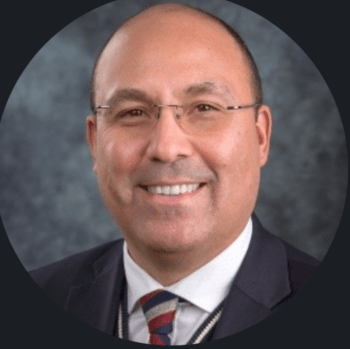
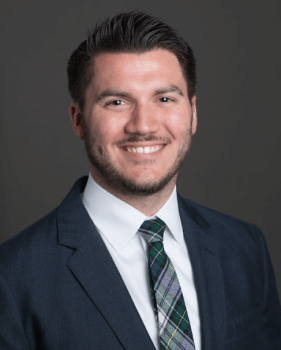
This panel highlights collaborations between USDA, researchers, and tribal governments to incorporate Indigenous Knowledge (IK) to solve challenges facing American farmers. IK is the local, in-depth knowledge of a place acquired over generations. Incorporating IK empowers farmers, strengthens resilience, expands tribal food sovereignty, and promotes conservation, aligning with USDA’s priorities.
Moderator: Heather Dawn Thompson, Director, Office of Tribal Relations
Hopi Dry Farming
The speaker will discuss restoration of the American Indian Food System based on the stewardship principles of Indigenous conservation, focusing on the practice of Hopi dry farming, a practice of his people for millennia.
Speaker: Michael Kotutwa Johnson, Assistant Specialist, Indigenous Resiliency Center, University of Arizona, Hopi Tribe of Arizona
Food Sovereignty
The speaker will discuss indigenous foodways and the wisdom of those who first developed the use of native plants both as sustenance and as medicine.
Speaker: Linda Black Elk, Educational Programming and Community Engagement Leader, North American Traditional Indigenous Food Systems
Buffalo Harvest and Grassland Management
The speaker will discuss how a small herd of bison and a vision to heal 1,000 acres of battered ranchland nearly 30 years ago succeeded in regenerating over 300,000 acres of grassland, promoting the traditional knowledge of tribal communities through market practice.
Speaker: Colton Jones, Sourcing Manager, Wild Idea Buffalo
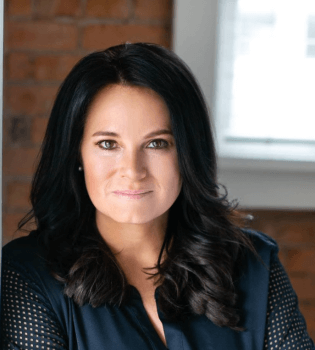
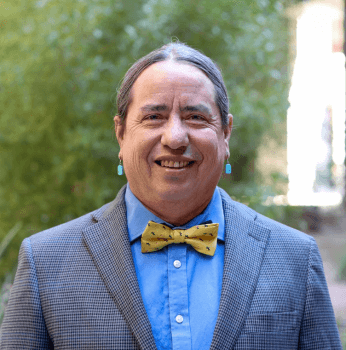
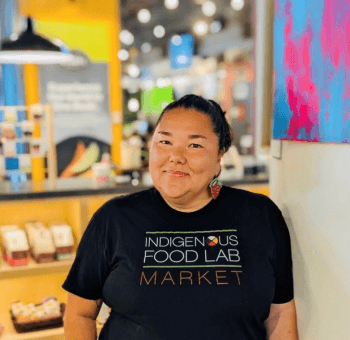

The 5th National Climate Assessment (NCA5) was released in November 2023. Chapter 11 of NCA5 – Agriculture, Food Systems, and Rural Communities – highlights many of the effects of climate change on the agriculture community. Climate change poses significant challenges to US agricultural production, food systems, and rural communities—from primary producers to supporting industries to consumers.
Moderator: Carl Bolster, Research Hydrologist, USDA/ARS, Bowling Green, KY
Agriculture in a changing climate
Managing risk in agriculture is becoming increasingly difficult due to climate change. Agroecological principles provide opportunities for farmers and ranchers to increase resilience and maintain production.
Speaker: Carl Bolster, Research Hydrologist, USDA/ARS, Bowling Green, KY
Planning for the future of agriculture in a changing climate
Climate change has increased risk in farming and ranching, making producer adaptation necessary to increase resilience and maintain production.
Speaker: Virginia Jin, Research Leader & Location Coordinator, USDA/ARS, Lincoln, NE
Planning for disruptions to our food systems in a changing climate
Climate change is projected to reduce the availability and affordability of nutritious food, with impacts being unevenly distributed across society. Disruptions to food systems and supply chains are expected to increase with climate change.
Speaker: Dannele Peck, Director, Northern Plains Climate Hub, USDA/ARS, Fort Collins, CO
Farming in a changing climate: a producer’s perspective
Risk is an ever-present reality in farming and managing risk is increasingly difficult in a changing climate. A producer will give their perspective on planning and managing the agricultural landscape to thrive in a changing climate.
Speaker: Jimmy Emmons, Senior Vice President of Climate-smart Programs, Farm Journal, Leedey, OK
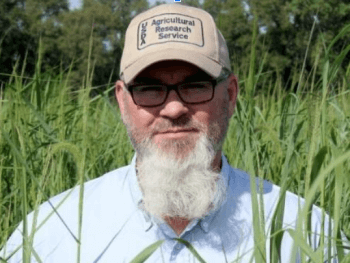
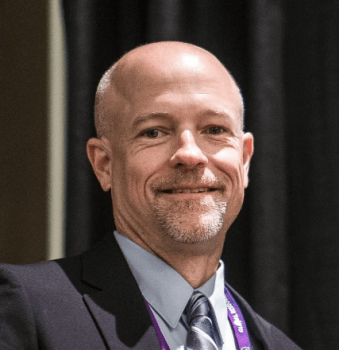
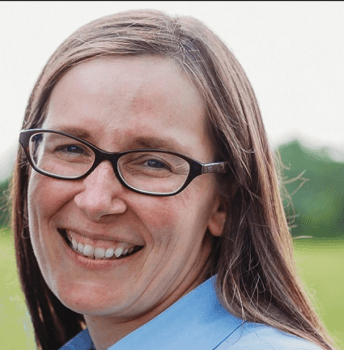
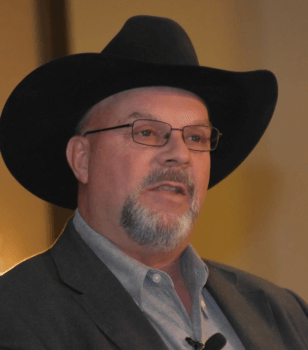
Aquaculture has been the fastest growing form of agriculture globally for decades, but domestic production remains low relative to its potential. In this session, we will provide an overview of the aquaculture sector, including how its expansion contributes to climate-smart agriculture and global food security. We will address topics along the supply chain from feeds, production, and markets; and consider advances such as those related to siting, management, precision feeding, and other technology.
Moderators: Christopher Davis (USDA-ERS) and David O'Brien (NOAA)
Outlook on U.S. Aquaculture Industry
This presentation will provide an overview of the industry, including status and trends globally and domestically; challenges and opportunities for US aquaculture; advances in technology and management to support sustainable production; and the role of federal agencies.
Speaker: Sebastian Belle, President of the National Aquaculture Association and Executive Director of Maine Aquaculture Association
Cargill’s Sustainable Aquaculture Initiative
Cargill is a leading supplier of feed and nutrition for the international aquaculture industry. This presentation will explore the connections between land-based agriculture and aquaculture and provide an overview of Cargill’s efforts including development of aquaculture feeds and precision feeding technology. It will also address broad perspectives on aquaculture sustainability and public perceptions.
Speaker: Isaac Yun, Country Director and Commercial Leader of Aqua Nutrition, Cargill
A Food Service Perspective on Aquaculture
Sysco is the world’s global foodservice leader, with an international network supporting customers in 90 different countries around the world. This presentation will explore the importance of aquaculture to Sysco and the broader food service industry. It will address the value of domestic production as a complement to imported seafood, as well as customer perceptions and expectations related to seafood nutrition and sustainability.
Speaker: Victoria Gutierrez, Senior Vice President and Chief Merchandising Officer, Sysco
Closing Remarks
Aquaculture production of finfish, shellfish and seaweeds is growing because demands for healthy seafood products are increasing beyond the capacities of wild-caught fisheries. These remarks will address the role of USDA in supporting aquaculture development.
Speaker: Dr. Deidra Chester, Director of the Office of the Chief Scientist – USDA, REE

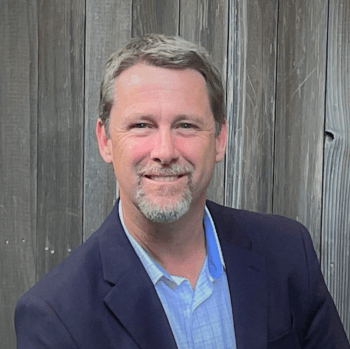




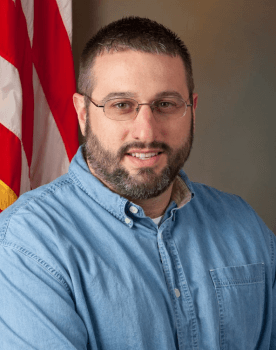
The session will present the outlook for the U.S. dairy sector through 2024. It will also examine developments in the dairy industry's involvement with sustainability and carbon markets, including projects offering carbon reduction and offsets.
Moderator: Jessica Richard, Agricultural Economist, USDA, Agricultural Marketing Service, Dairy Programs, Washington DC
Outlook for the U.S. Dairy Sector
Outlook for the U.S. dairy sector through 2024.
Speaker: Michael McConnell, Livestock, Poultry, and Dairy Economist, Office of the Chief Economist, USDA, Washington, DC
Dairy Producer's Perspective of Digesters
Producer experience building digesters and working with carbon contracts
Speaker: Steve Shehadey, Owner and Manager, Bar 20 Dairy, Kerman, CA
Dairy Industry Efforts - Sustainability, Climate-smart Practices, and Environmental Markets
Highlight of innovative and climate-smart manure and feed management practices being used on California dairy farms and the active carbon market in California.
Speaker: Michael Boccadoro, Executive Director, Dairy Cares, Sacramento, CA
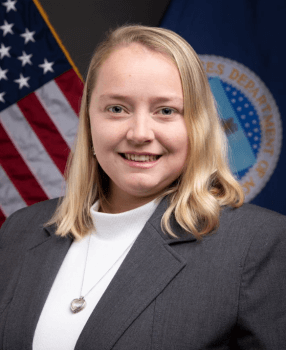
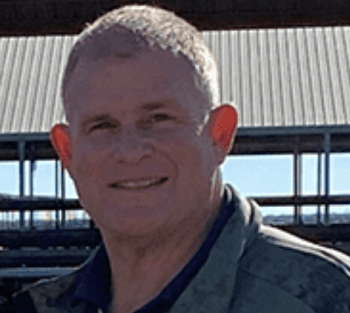
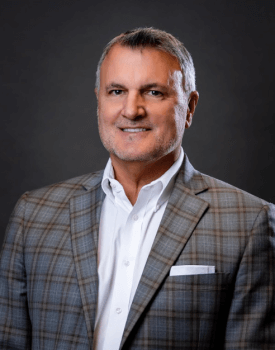
An overview of the trends and recent developments in organic production and consumption. Presentations will discuss up-to-date information on organic acreage and markets, consumer interest in organic plant-based foods, and regenerative agriculture.
Moderator: Erin Healy, Director of Standards Division, USDA, NOP
Organic Outlook
This presentation will cover recent trends in domestic and global production, trade, price premiums, and retail sales of organic products.
Speaker: Sharon Raszap Skorbiansky, Research Economist, USDA, ERS, Silver Spring, MD
Organics and Plant-Based Foods
Speaker: Elizabeth Sachs, Director of Sustainable Sourcing, Plant Based Foods Institute
Regenerative and Organic Agriculture
This presentation will discuss Rodale Institute's history and pioneering research in regenerative and organic agriculture, the origins of regenerative, and present day work in defining a new standard built on the USDA organic label.
Speaker: Jeff Tkach, CEO of Rodale Institute
